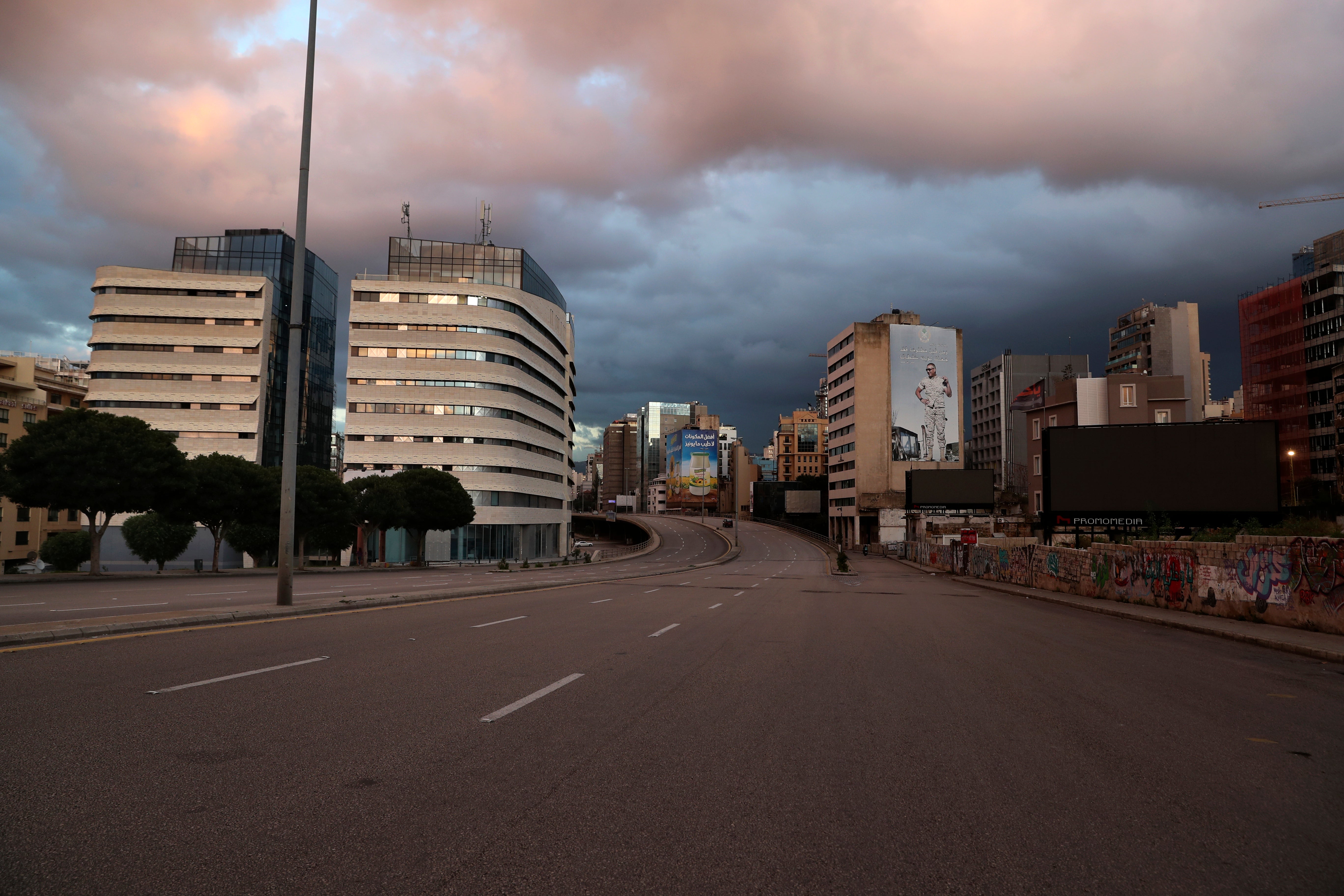Lebanon signs with Pfizer for 2.1 million vaccine doses
Lebanon has finalized a deal with Pfizer to secure 2.1 million doses of the vaccine against coronavirus amid a surge in infections in the small country

Your support helps us to tell the story
From reproductive rights to climate change to Big Tech, The Independent is on the ground when the story is developing. Whether it's investigating the financials of Elon Musk's pro-Trump PAC or producing our latest documentary, 'The A Word', which shines a light on the American women fighting for reproductive rights, we know how important it is to parse out the facts from the messaging.
At such a critical moment in US history, we need reporters on the ground. Your donation allows us to keep sending journalists to speak to both sides of the story.
The Independent is trusted by Americans across the entire political spectrum. And unlike many other quality news outlets, we choose not to lock Americans out of our reporting and analysis with paywalls. We believe quality journalism should be available to everyone, paid for by those who can afford it.
Your support makes all the difference.Lebanon finalized a deal with Pfizer on Sunday for 2.1 million doses of the coronavirus vaccine amid surge in infections that has overwhelmed the country s health care system.
The doses are to arrive in Lebanon starting early February, according to Lebanon’s health ministry.
The government's statement said the Pfizer vaccines will be complemented with another 2.7 million doses from the U.N.-led program to provide for countries in need. It gave no date for when those doses are expected to arrive but said the agreement was signed in October.
A lawmaker earlier told The Associated Press the Pfizer deal being negotiated is for $18 a dose, a price that takes into consideration Lebanon’s economic troubles, and is expected to cover 20% of the population for free.
Another 2 million doses are being negotiated in coordination with Lebanon's private sector and the other international pharmaceutical companies that have developed the vaccines, the ministry said. It named Oxford-Astrazeneca and China's Sinopharm as the international sources.
Lebanon, a country of more than 6 million, including at least 1 million refugees, has seen a massive climb in infections since Christmas and New Year holidays. The surge has overwhelmed hospitals and the health care system.
During the holiday season, restrictions in place for months to combat the virus were eased to encourage spending by some 80,000 expatriates who returned home to celebrate. The pandemic has hit Lebanon at a time when it already was struggling with a crippling economic and financial crisis. The combination has sent the country's currency tumbling, banks putting informal controls on withdrawals and businesses shuttering around the country.
As infections increased and ICU beds filled up, authorities imposed the strictest lockdown yet starting last Thursday, hoping that restrictions in place until February 1 could help contain the rise.
In recent weeks, between 4,000 and 5,000 infections were recorded a day and a rise in daily death tolls, up from numbers that hovered around 1,000 since November.
In the first 11 days of January alone, Lebanon’s Red Cross said it has transported over 1,200 COVID-19 patients to hospitals.
Lebanon has so far recorded 249,158 infections and some 1,866 deaths.
Many have expressed concern the measures have come too late — many hospitals have already reached maximum capacity for coronavirus patients, some have run out of beds, oxygen tanks and ventilators while others have halted elective surgeries.
There are already calls to extend the lockdown beyond Valentine’s Day on February 14— another widely celebrated holiday in Lebanon.
Following bureaucratic delays, the country now is putting hopes on vaccines. Parliament approved on Friday the law that allowed for signing the final deal with Pfizer, offering guarantees for pharmaceutical companies for emergency rollout of the vaccine. Lebanon has at least 12 refrigerators to store the vaccine.